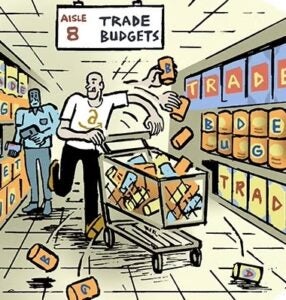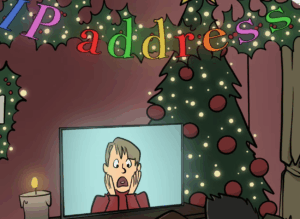Agents Of Change
The past few years have been hectic for agency holdcos.
But strap in, because this is just the beginning of what will be a long and fraught period for traditional ad agencies, according to Adweek.
Dentsu is for sale. WPP is expected to take what Adweek calls “drastic measures” to reshape its portfolio in the lead-up to a potential sale. Omnicom and IPG are merging. Oh, and Havas and Horizon teamed up to offer greater scale.
But these mergers, tie-ups and sell-offs will also undoubtedly reshuffle the market and leave business up for grabs. For example, there are many conflicted accounts between IPG and Omnicom, which will likely prompt brands to reconsider their current agency relationships.
Midsize and independent agencies – what few are left after a years-long acquisition spree among the holdcos – have successfully snapped up some of these accounts. Many largeish brands prefer to be big fish in a smaller agency’s pond, so to speak, rather than small fish in a holdco ocean.
But that’s mostly what you might think of as cloud cover for the big change that’s coming as brands use this moment of instability to see how much agency work AI can handle at a lower cost.
AP Goes Ape For RAG
If your biggest concern about AI is that it doesn’t generate accurately formatted citations, then boy, oh boy do we have good news for you.
Over the past year, the Associated Press has formatted its tens of millions of assets – including text, videos, photos and audio – into machine-readable content for LLMs. As demand for retrieval-augmented generation (RAG) takes off, publishers have more reason than ever to make their content accessible to LLMs.
RAG, by the way, is a process whereby an LLM pulls data from knowledge bases outside of its training – like news sites and scholarly journals – before generating a response so as to optimize for accuracy.
The “RAG boom,” as Digiday refers to it, is opening a new lane of revenue for publishers, especially those looking to win over more enterprise clients.
The new format for AP’s archives will allow LLMs to “reliably ground, cite and pay for decades of reporting,” per Digiday. Which all sounds well and good – as long as the “pay for” element doesn’t fall by the wayside.
Robot Reporters
The decrease in publisher traffic as a result of chatbot queries and AI Overviews is nothing new at this point. But now it’s infiltrating the newsroom, too.
Some news sites, including Fortune and Business Insider, have gone so far as to use AI to write full drafts of articles (which, notably, can be rife with errors).
Still, just as advertisers have broadly agreed that AI is a timesaver when it comes to mundane, repetitive tasks, like creative versioning and modeling audiences, it cuts down on some of the more grueling tasks for publishers, too.
It’s a big help in “analyzing large data sets, organizing notes, checking spelling and grammar,” Stephen Adler, head of the Ethics and Journalism Initiative at New York University, told the New York Times, but it still “comes with significant risks.”
Excuse us if we say, no duh.
But Wait! There’s More!
Google released new AI and monetization tools for publishers. [blog]
More and more experiments have cropped up lately within Google’s Discover feed. And many point toward more YouTube integration and greater monetization. [Search Engine Roundtable]
Nostalgia is back, and brands are digging into their ad archives for creative inspiration. [Marketing Brew]
Seen an uptick in videos of women getting, uh, choked, lately? Yeah, those are from OpenAI’s Sora 2. [404 Media]
The latest in AI hallucinations: Some lawyers are citing cases that even the judges haven’t heard of. That’s because they don’t exist. [NYT]
How X and its owner Elon Musk are boosting right wing extremism in British politics. [Sky News]
You’re Hired!
ICYMI: Teads appoints Mollie Spilman as chief commercial officer. [release]














